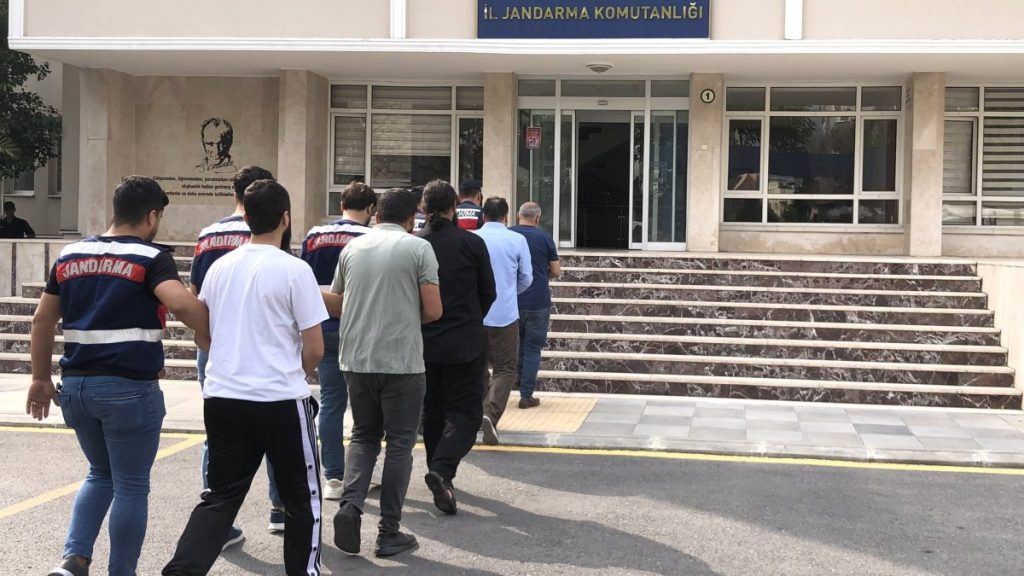Interior Minister Ali Yerlikaya announced on Wednesday that a total of 298 suspects were apprehended in operations across 47 provinces in the past two weeks against the terrorist group Daesh.
Yerlikaya said the operations were coordinated in cooperation between the chief prosecutor’s offices, the National Intelligence Organization (MIT), police and gendarmerie forces and spanned cities including the capital Ankara, Istanbul and Izmir.
Among captured suspects were those involved in financing the group’s activities and disseminating Daesh propaganda. Authorities also seized a large number of pistols and digital propaganda material in operations. Yerlikaya said in a social media post about the operations that they drew strength from unity and solidarity against terrorism and pledged to continue operations to ensure public security.
Since the 2019 collapse of the self-proclaimed “caliphate,” some suspected Daesh members have settled in Türkiye, operating a so-called Khorasan Province (Daesh-K) network, which looks for “new methods” and recruits more foreign nationals for its activities after constant counterterrorism operations became a “challenge,” according to Turkish security sources.
The National Intelligence Organization (MIT) thwarted the terrorist group’s efforts for recruitment, obtaining funds and logistics support after its latest operation in the aftermath of a church shooting in Istanbul in January 2024.
Daesh remains the second biggest threat of terrorism for Türkiye, which faces security risks from multiple terrorist groups and was one of the first countries to declare it a terrorist group in 2013.
In December last year, Turkish security forces detained 32 suspects over alleged links with Daesh, who were planning attacks on churches and synagogues, as well as the Iraqi Embassy.
Terrorists from Daesh and other groups, such as the PKK and its Syrian wing, the YPG, rely on a network of members and supporters in Türkiye.
Turkish authorities have ordered the freezing of millions of lira worth of assets since 2013 to crack down on terrorism financiers in line with United Nations sanctions.


